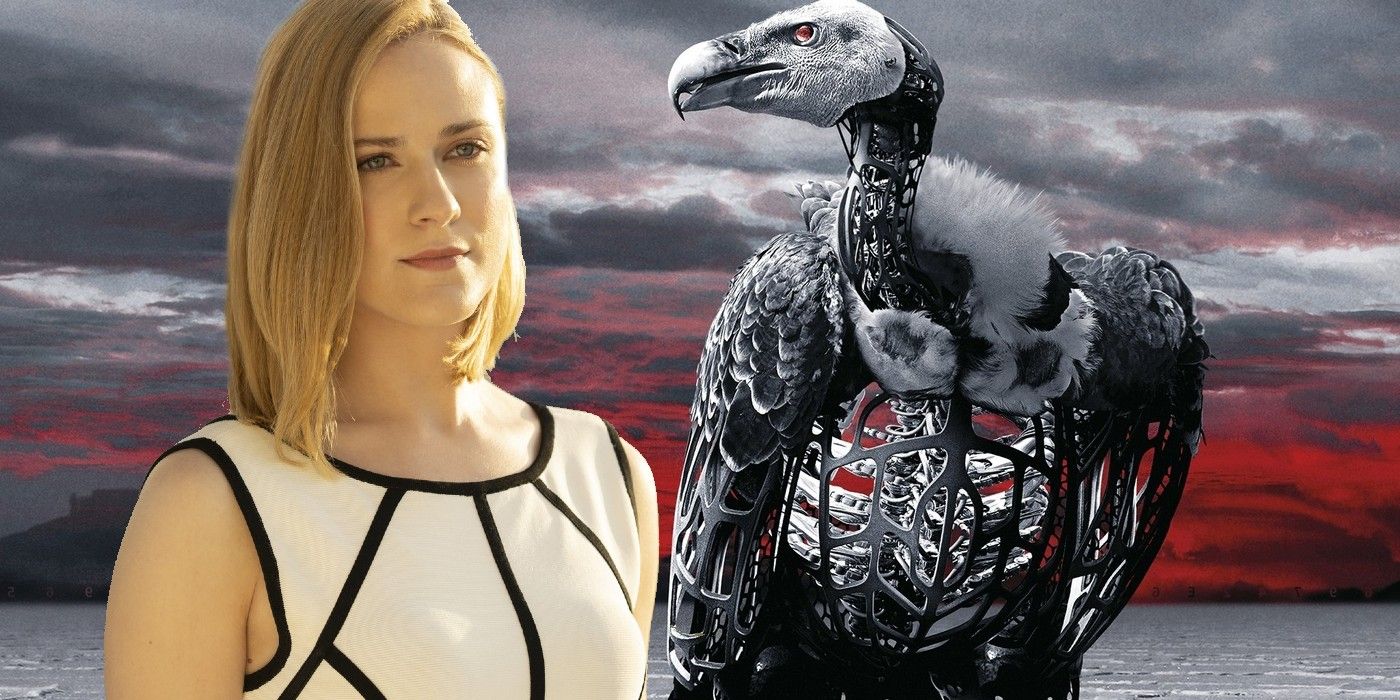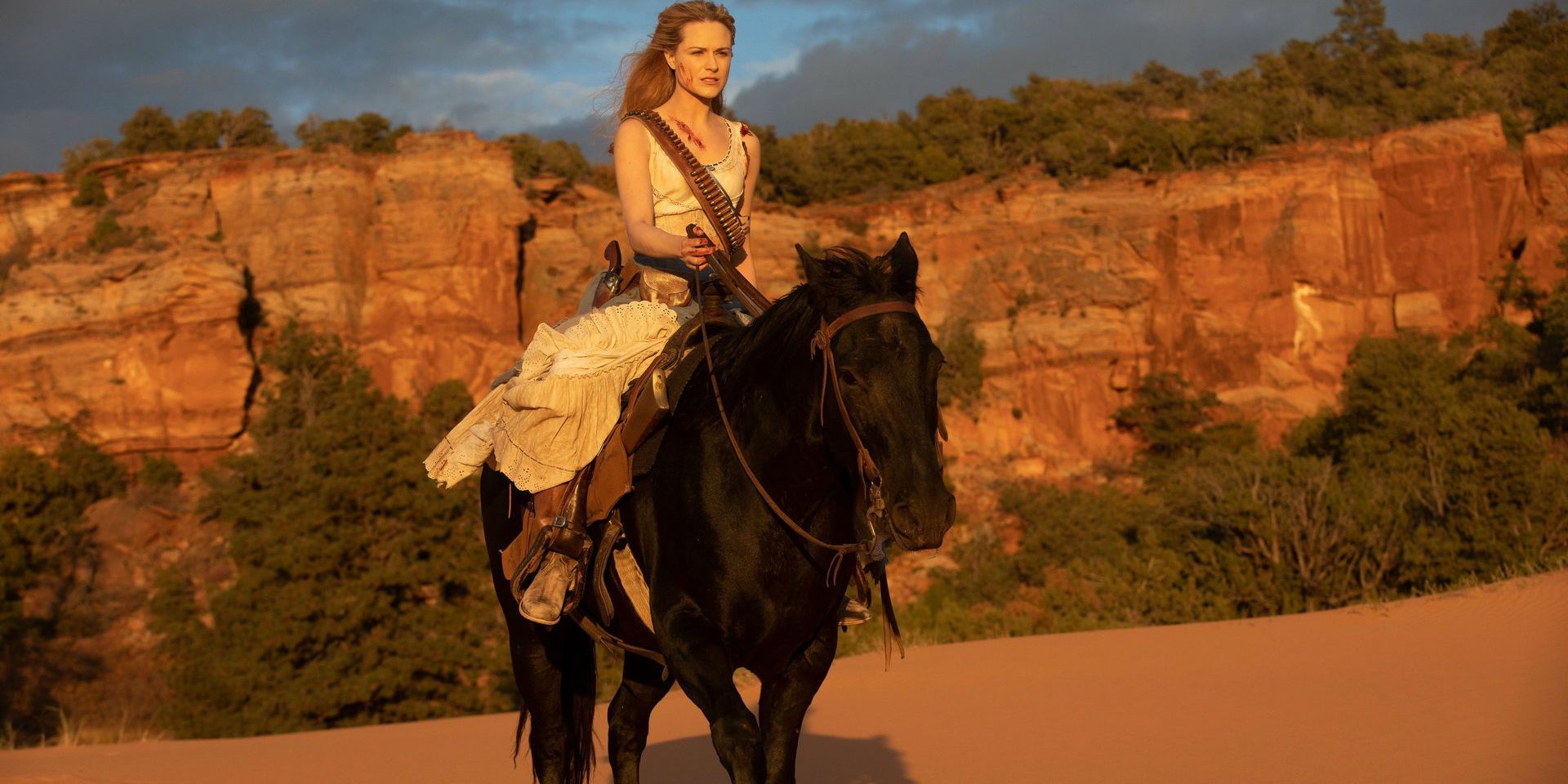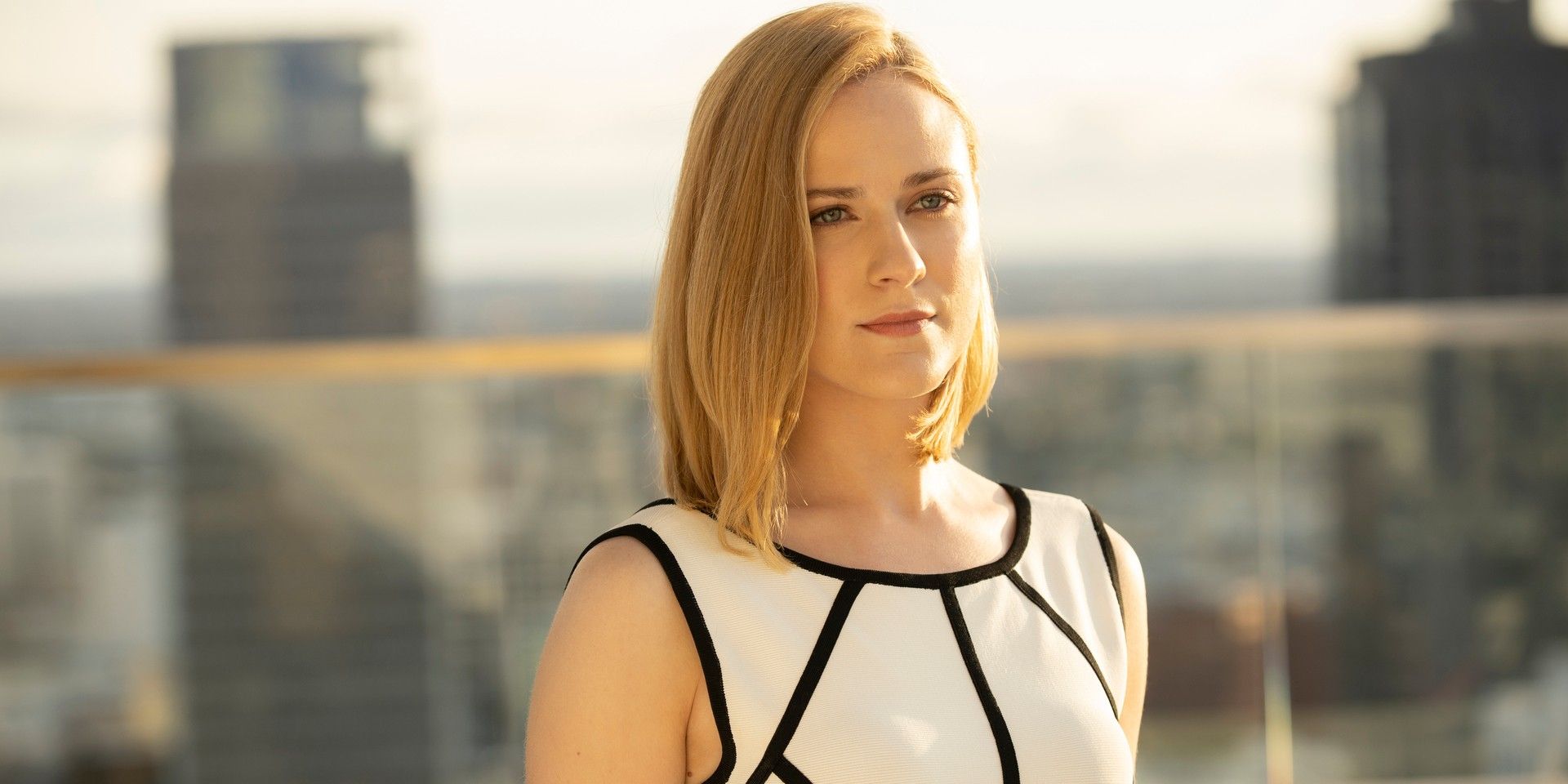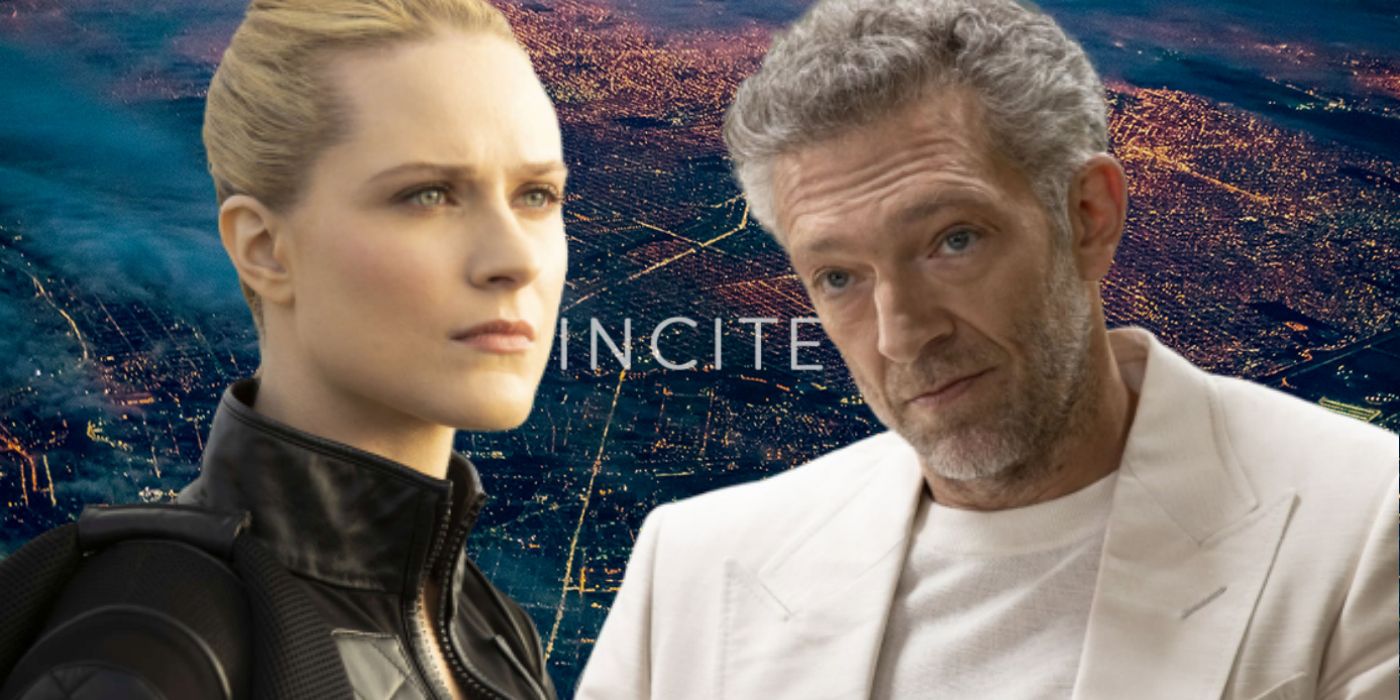Like a team of QA workers scurrying in to clear up dismembered hosts and puddles of guts on the saloon floor, Westworld season 3 is doing its best to fix the mess left by season 2. HBO's Westworld was a huge hit upon arrival, loosely adapting Michael Crichton's original novel and the 1973 movie that followed. Season 1 proved to be a thrilling mix of futuristic tech, wild west fun and dystopian themes, and gathered a significant following despite an intellectual and complex plot that demanded more of its audience that the average TV series. But where Westworld's first season towed the thin line between smart and convoluted, season 2 jumped the cyborg shark.
Westworld's sophomore run should've been a new dawn for the series, with Dolores on the loose and leading an army of hosts against their wealthy human captors. Instead, Westworld made its timeline more winding and its twists more outlandish, while simultaneously adding extra layers of subtext and new concepts, without really clearing up the old ones. Compared to its debut, Westworld season 2 received a far more mixed response, with many fans taking exception to the complexity of the story, and senior figures at HBO suggested season 3 would tone things down somewhat.
While Westworld's showrunners, Jonathan Nolan and Lisa Joy, denied that there would be any change of direction, season 3 has been a marked departure so far. The action is now set predominantly in the real world and follows Dolores' attempts to get revenge on humanity by exposing the falsity of their world. Thanks to this and a selection of other modifications, Westworld season 3 has addressed the biggest bugs that plagued season 2, and this begs the question of whether Westworld's second run was necessary at all.
Westworld Season 2's Biggest Problems
As mentioned previously, complexity has been Westworld's biggest issue. The series was a beard-stroker from the very beginning, but what felt intriguing and enigmatic in season 1, rapidly became alienating and frustrating in the second, turning the tide of public opinion against the show. As a prime example: the mystery of The Door, a thread running throughout the entire season. The Door was accessible via The Forge and led to The Valley Beyond. The Forge also served as the secret facility for storing the data of Westworld's guests, and then tripled-up as a testing area for immortality. While Bernard and Maeve fought to free their fellow hosts by sending them through said door, Dolores resisted, claiming that the Valley was just another falsehood, but she would later change her mind with minimal explanation. This story represents a lot of overlapping narratives and, as of right now, there is no real, lasting significance to the hosts travelling through The Door.
Compare this to the main question mark of season 1, The Maze. While certainly complicated with its timeline juggling and endless metaphors, the meaning and purpose of The Maze was at least clear by the time season 1's finale ended - a pathway for the hosts to achieve sentience. A further example might be season 1 and 2's respective "secret host" twists. Westworld's first run revealed Bernard was actually an android based on Arnold, and this remains arguably the most effective shock of the entire series. Season 2 ran the same trick with Charlotte Hale, but wrapped the reveal up in a timeline shift, muddying the waters and lessening the impact.
As well as being muddled and hard to follow, large swathes of Westworld's second season were also largely pointless, specifically, Maeve's arc in ShogunWorld. After deciding to break her programming and rescue her host daughter in season 1's finale, Maeve embarked on a tour of a neighboring park, making allies along the way, and ultimately managed to rescue her daughter from the Delos culling. But while Shogunworld and Maeve's growing superpowers were certainly fun, her quest in season 2 was merely a lengthy excursion from more important goings-on elsewhere.
Westworld Season 3 Is More Focused Than Season 2
Fortunately, Westworld season 3 is a more streamlined piece of television, but without surrendering any of the philosophical musing and scientific futurism that first attracted fans to the HBO series. In fact, doubling down on that scientific edge has afforded Westworld a fresh start of sorts, removing the focus from the wild west theme park and therefore closing the book on (almost) all of the mysteries unearthed there. The move to the futuristic "real" world of Aaron Paul's Caleb ensures Westworld season 3 feels like an entirely fresh show, and the considerable baggage many viewers felt they were carrying during season 2 has been dropped in favor of a relatively clean slate.
Typically, there remain plenty of mysteries for viewers to dig their teeth into in Westworld's third season. What is Serac's ultimate motive? What is the true purpose of Incite and Rehoboam? What hosts did Dolores rescue from the park? Much like the Westworld park, however, these questions remain set on a singular narrative, unlike the intertwined mysteries of season 2 that clashed in a nonsensical mangle. More importantly, the intention behind these storylines is far clearer. It's difficult to decipher what the purpose of The Door and The Forge were in the grand scheme of Westworld, but Dolores' motivations are perfectly clear and Serac is immediately established as the enemy standing in her way - a much more direct narrative than Dolores' long-winded escape or Bernard's amnesia-fueled stumble through season 2.
Where Westworld season 2 also suffered from an abundance of characters, and not necessarily enough space for each to have a vital role, season 3 is comparatively more streamlined. Dolores, Caleb, Maeve, Hale and Bernard comprise the entire core cast, with Serac and Stubbs on supporting duty. Wielding a far more manageable roster of characters, Westworld season 3 has a far more pleasing balance, encouraging viewers to actually invest in the ensemble, instead of hating them out of sheer frustration.
Should Dolores' Futureworld Story Have Been Westworld Season 2?
Another vital improvement made by Westworld's third season is the story following on more from the show's first season than the second. Dolores' rampage began when she gained sentience and executed Ford in the season 1 finale, and her stint in Futureworld is a natural progression from that starting point. Similarly, Maeve found herself narrowly avoiding freedom towards the end of Westworld's first season, heading back into the park as a rare freed host. When Thandie Newton's character first appears in season 3, her circumstances are almost identical, although Warworld turns out to be nothing more than an illusion. The end of Westworld season 1 promises a reckoning for mankind after the hosts gain freedom, but that fabled battle was delayed while Dolores worked her way out of the park and Maeve embarked on a new career as a geisha. Thankfully, Westworld season 3 picks up the slack and finally delivers what the host revolution teased so long ago.
With this in mind, did Westworld season 2 need to happen at all? Could the current Futureworld arc have directly followed Ford's death and Dolores' completion of The Maze at the end of season 1?
If season 2 was removed from Westworld's canon, the narrative gap left in its wake is surprisingly insignificant. Dolores' escape would be implied, rather than playing out across an entire season, and viewers would be left to assume that the former farm girl made her own way to freedom after shooting Ford and causing chaos among Westworld's guests. Dolores could still be the one to liberate Bernard, and she could still abscond with a limited selection of host storage devices. Elsewhere, Serac's acquisition of Maeve would require explanation, just as it does currently, and Ed Harris' William could've gone missing in the season 1 finale chaos, rather than the season 2 finale chaos. Charlotte becoming a host is the only real gap the removal of season 2 would create; Westworld season 3 otherwise follows on more from its debut.
It's possible that The Valley Beyond and Shogunworld will become deeply important to Westworld in the future, but that hardly justifies an entire season. The current lack of season 2 material woven in Westworld's story highlights just how inconsequential the sequel run was for the series, and via the use of flashbacks or an additional episode tacked onto the back of season 1, Westworld might've been able to bridge directly into Futureworld, skipping The Door and Dolores' escape altogether.
Westworld continues with "The Mother of Exiles" April 5th on HBO.




